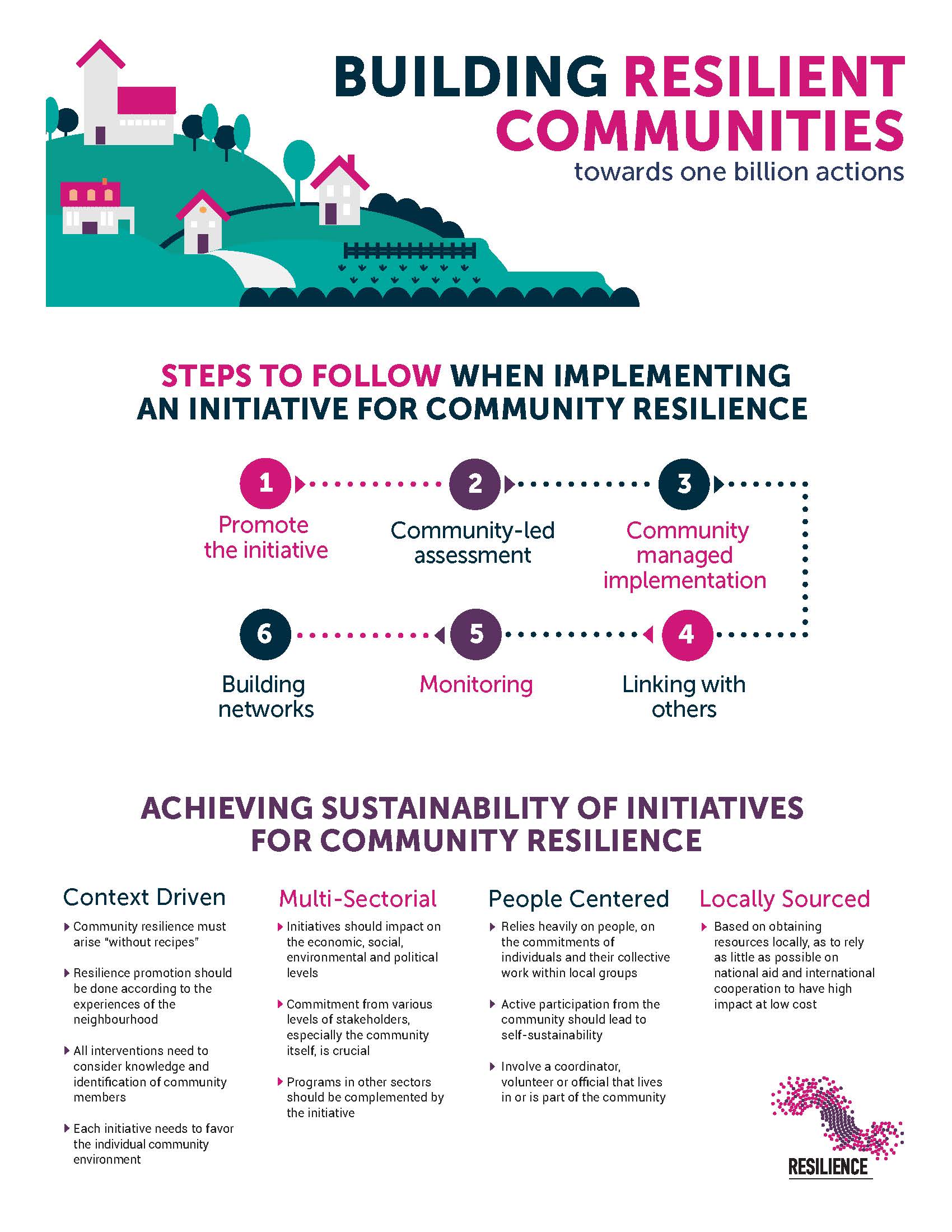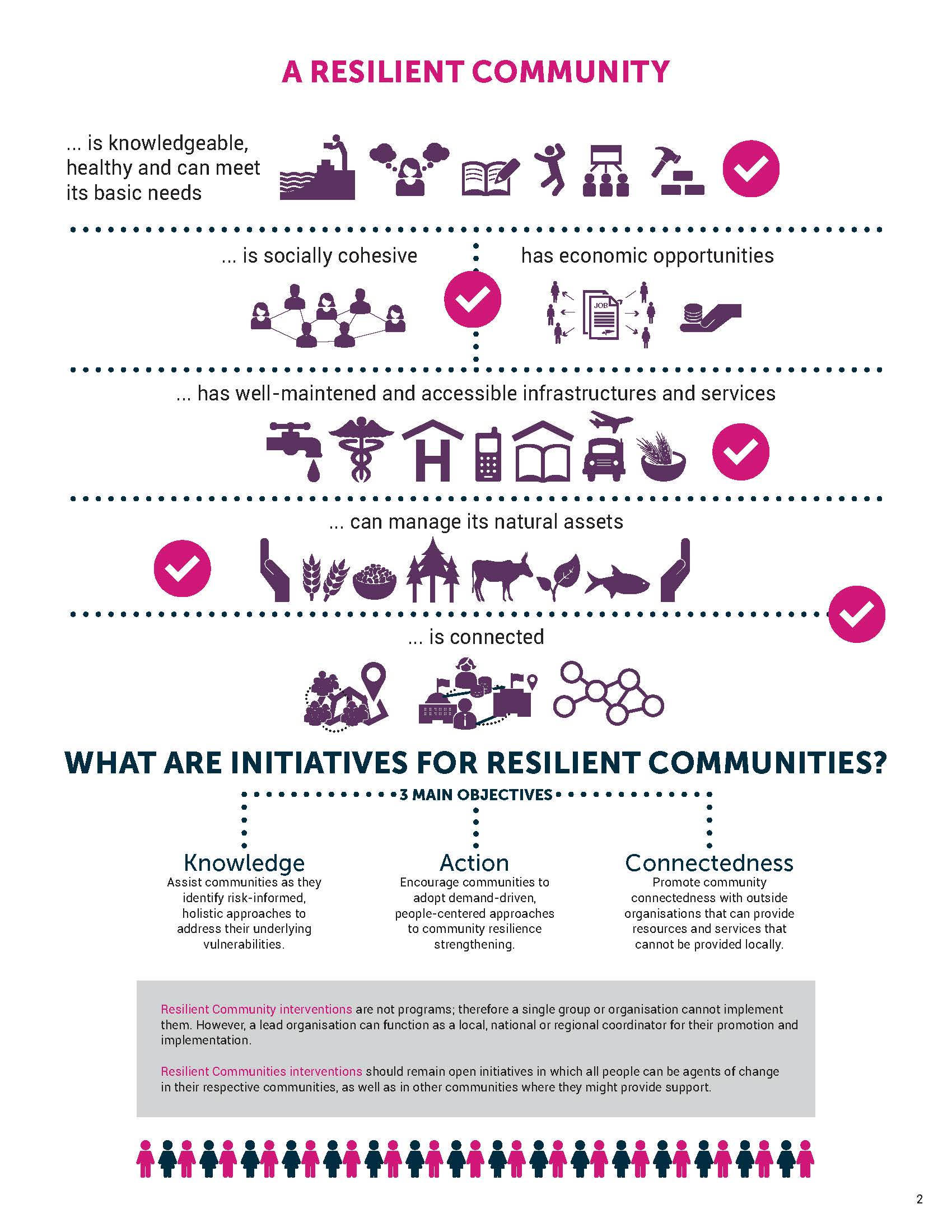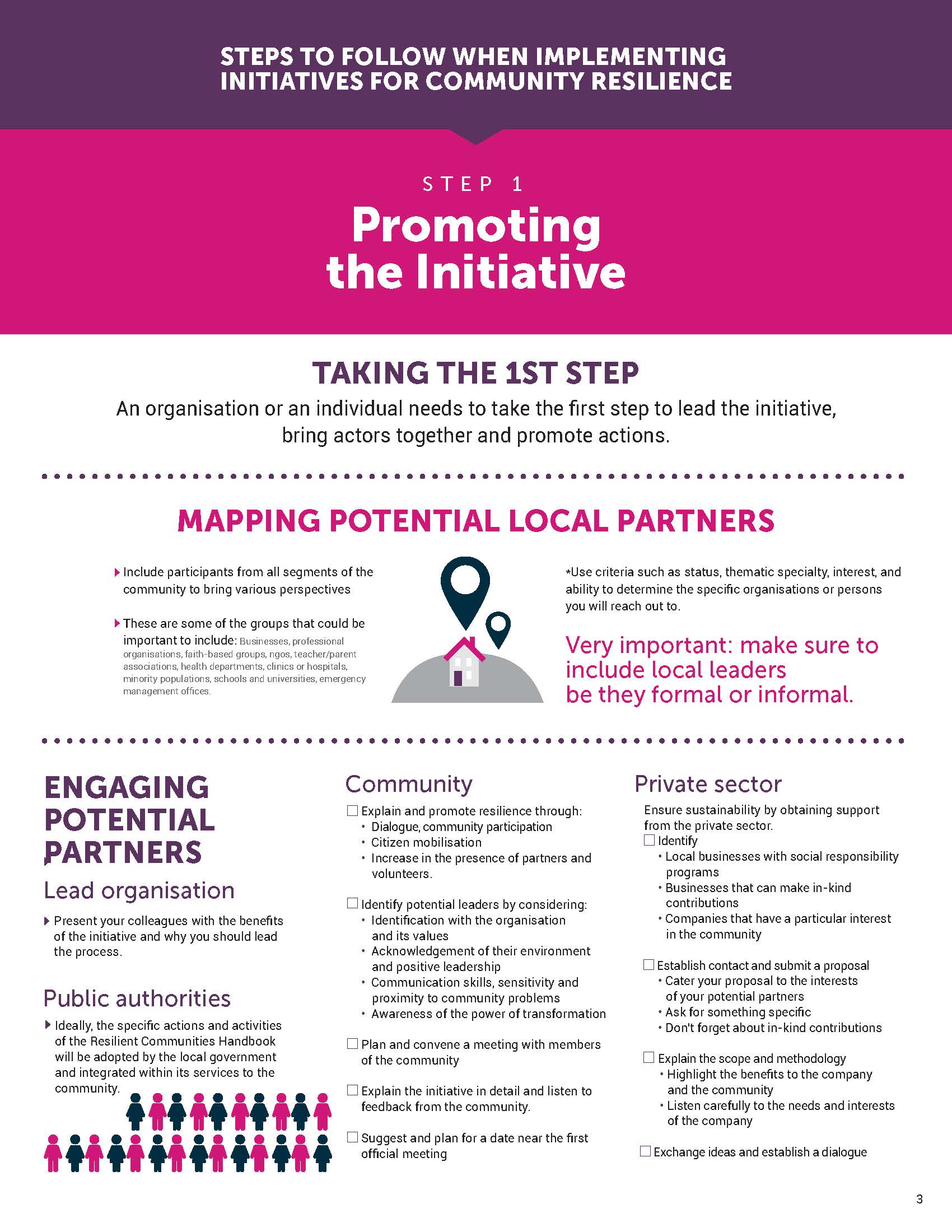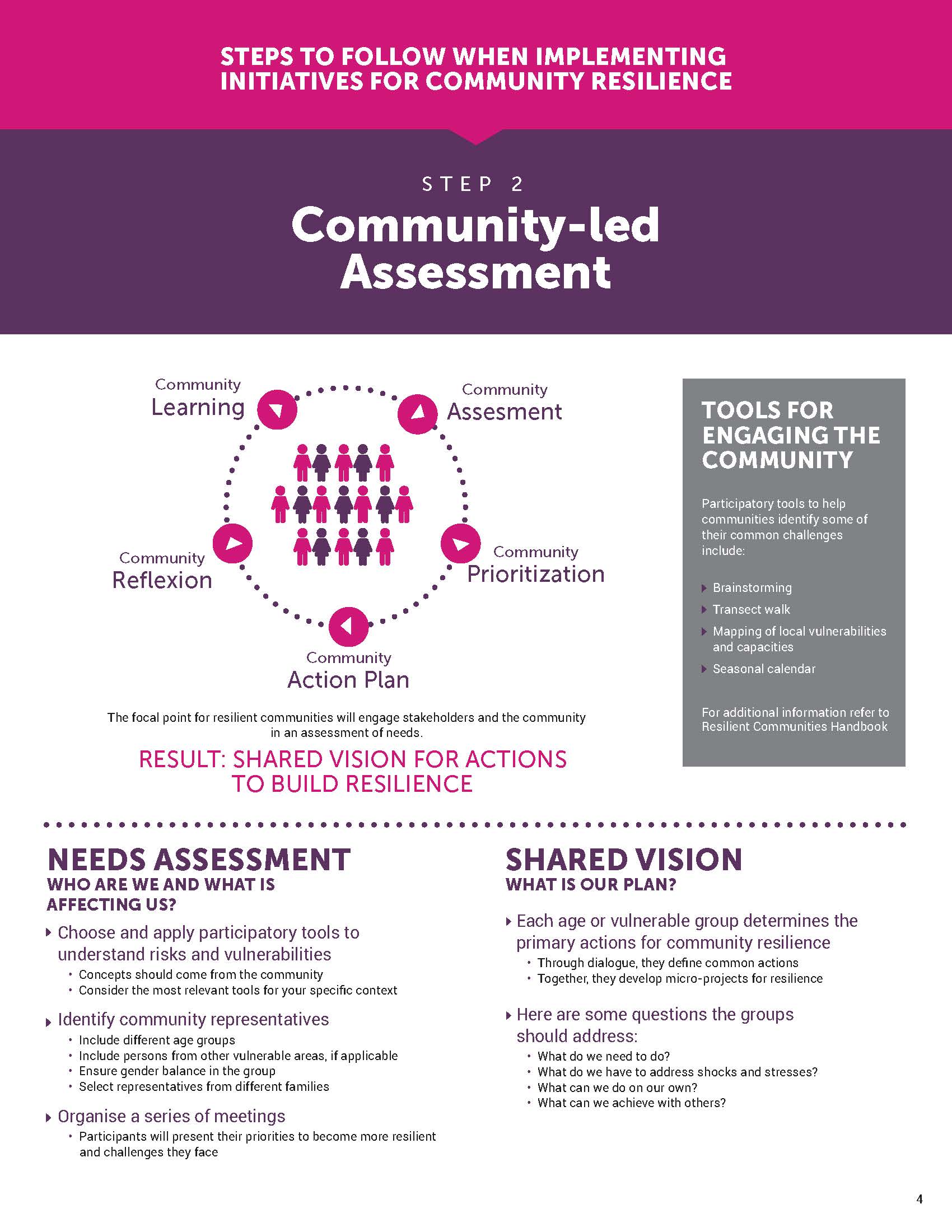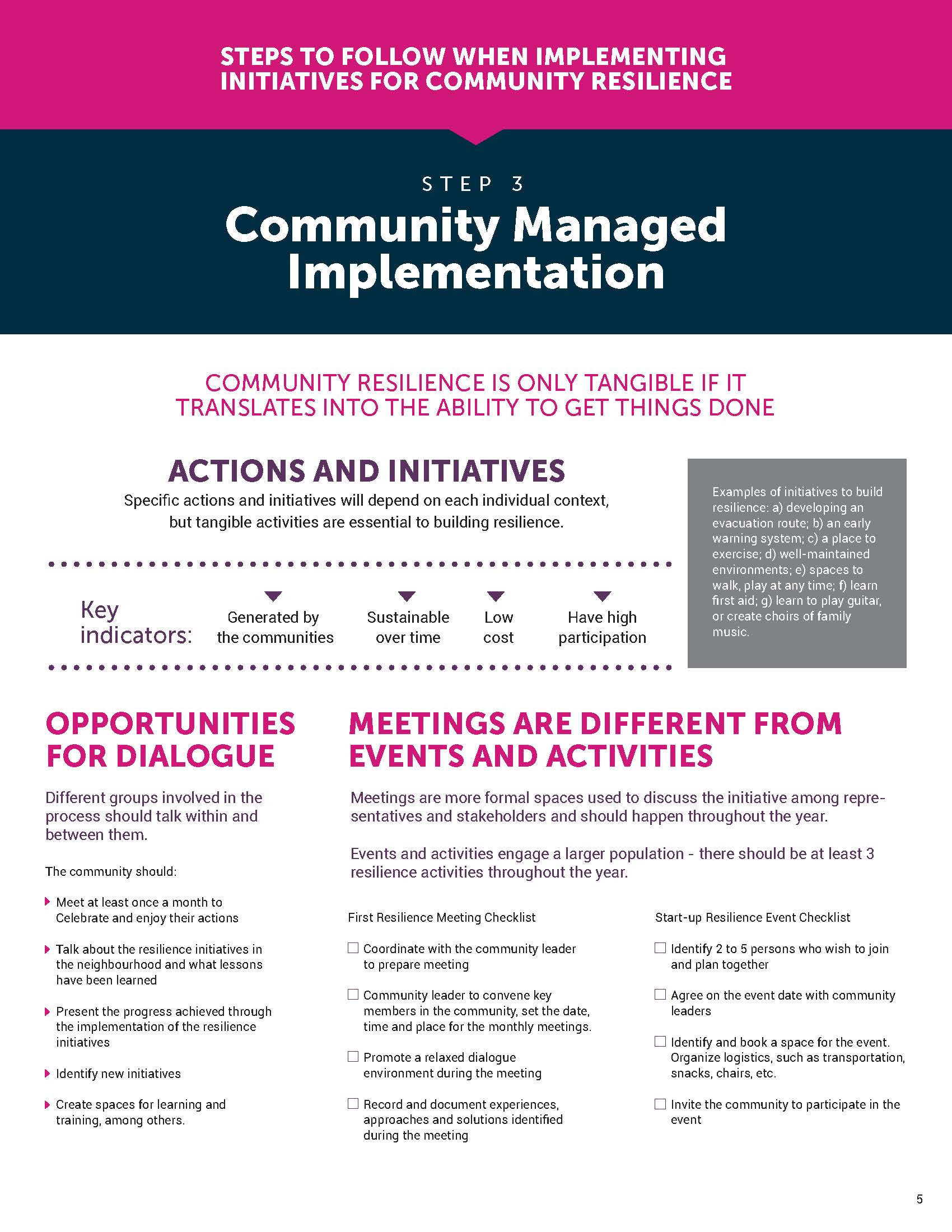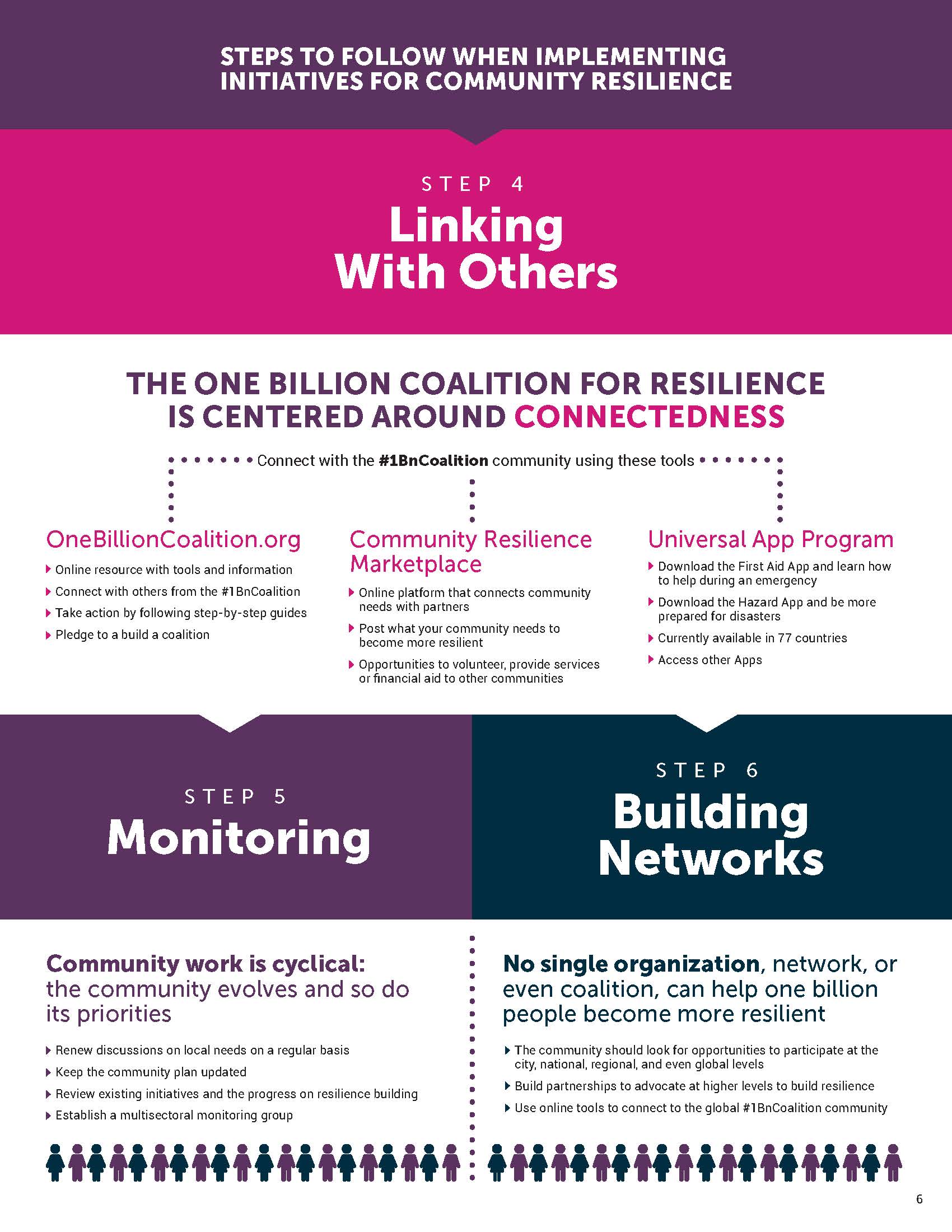Resilient Communities Handbook
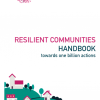

The humanitarian system is seeking ever greater resources to save more lives every year. The number of natural and manmade disasters is increasing as is the gap in resources available to help every person in need of humanitarian help. As such, actions must be taken to reduce the demand for humanitarian services, and enable sustainability of community actions at the grassroots level.
Affected communities are the first responders when a disaster hits. They are also the ones that stay behind to rebuild and rebound from its effects. When communities are resilient, they are better prepared and less dependent on external help. It is the collective responsibility of humanitarians to save more lives, but it is also our duty to ensure that all are given the means to respond on their own as much as possible. The One Billion Coalition for Resilience is built on the belief that given the right support, vulnerable groups everywhere will work together and care for their own and for others.
The Resilient Communities Handbook: Towards One Billion Actions is intended for the use of local implementers and provides a simple step-by-step process on how to launch a community resilience initiative. This handbook is not meant to be a “one size fit all” approach. On the contrary, every initiative is tailored to the context where it is implemented. Having said this, any Community Resilience intervention must always be based on four essential factors: it should be context-driven, multi-sectoral, locally sourced and people-centered.
Each initiative must be based on an assessment of needs at community level. Therefore the specific actions will vary based on assessment results and local capacity. These are enhanced thanks to access to technology, such as the Community Resilience Marketplace, an online platform and tool that will connect decision-makers to community needs and the collective resources of the One Billion Coalition.
For more information please visit www.onebillioncoalition.org
#1BnCoalition
